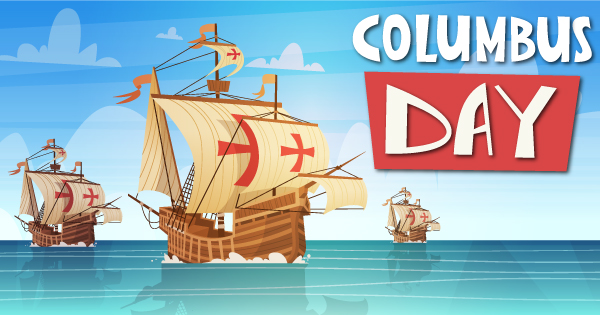Columbus Day or Indigenous Peoples Day?

Columbus may have sailed the ocean blue in fourteen hundred ninety two, but South Dakota instituted October 8 as Indigenous Peoples’ Day in nineteen hundred eighty nine as a counter-celebration. This is the holiday Rebecca Zisook’s students will be commemorating today due, in large part, to her FFT fellowship this summer.
“Previously, our third grade curriculum included an ‘Explorers’ unit that glorified post-Columbus imperialism and oppression of those colonized under a mask of purported bravery and achievement,” said Rebecca. “I wanted my Latinx students to be aware of the bravery and achievements of their ancestors, and I wanted to communicate with them more fluently beyond conversational Spanish.”

At the Library of Congress, reading, with a magnifying glass, an 1860’s issue of the Frederick Douglass Papers.
With her $5,000 Fund for Teachers grant, Rebecca investigated the richness of Mesoamerica’s indigenous peoples, first using primary sources from the Library of Congress and the National Museum of Anthropology in Mexico City, and then through language and cultural immersion in Oaxaca, Mexico. Her goal was to gain a nuanced perspective of Mesoamerican peoples and bring this knowledge to students in a way that applies to a broader American and global perspective.
Through guided tours of sites like the National Museum of Anthropology in Mexico City, Rebecca learned the dominant narratives about customs and peoples from the region. She sought out primary source materials as taught at the Library of Congress Summer Teacher Institute she attended prior to departing for Mexico, and enrolled in a four-week language school while living with a host family in Oaxaca. Her experience there included touring the Ethnobotanical Gardens and partaking in cultural events, such as a Guelaguetza, the annual celebration uniting representatives from 16 different ethnolinguistic groups.

Rebecca’s view of the Guelaguetza, watching performances from people from across the Mexican state of Oaxaca.
Rebecca plans to host her own Guelaguetza at Chicago’s Helen C. Peirce School of International Studies this year. She’s also collaborating with colleagues on an enhanced International Night in keeping with the school’s International Baccalaureate tradition and is in the process of replacing the “Explorers” unit with a “Culture” one.
“We can change the mindset of those who believe that speaking Spanish is somehow a hindrance to learning or identity,” said Rebecca. “We can break the pattern of Spanish-speaking immigrants feeling shame instead of pride for their home language. We can reclaim our histories, our languages, and our identities. We can build a more empathic world.”
[minti_divider style=”1″ icon=”” margin=”30px 0px 30px 0px”]

 Back to Blogs
Back to Blogs